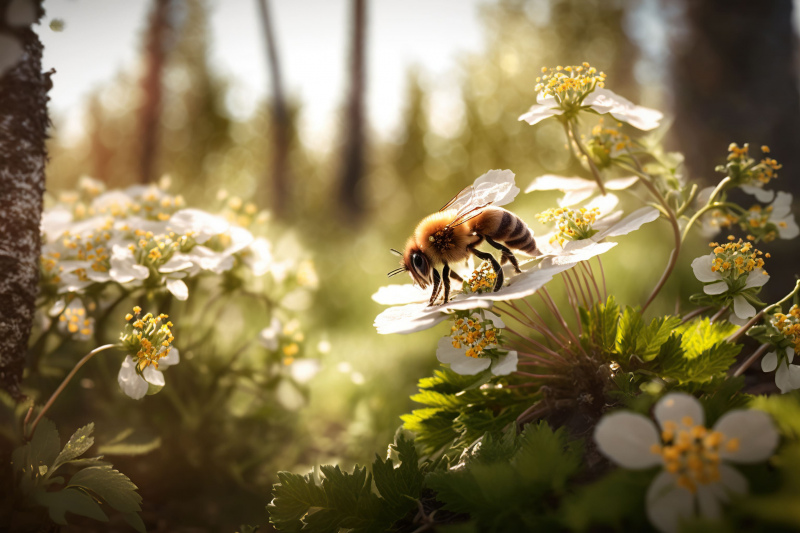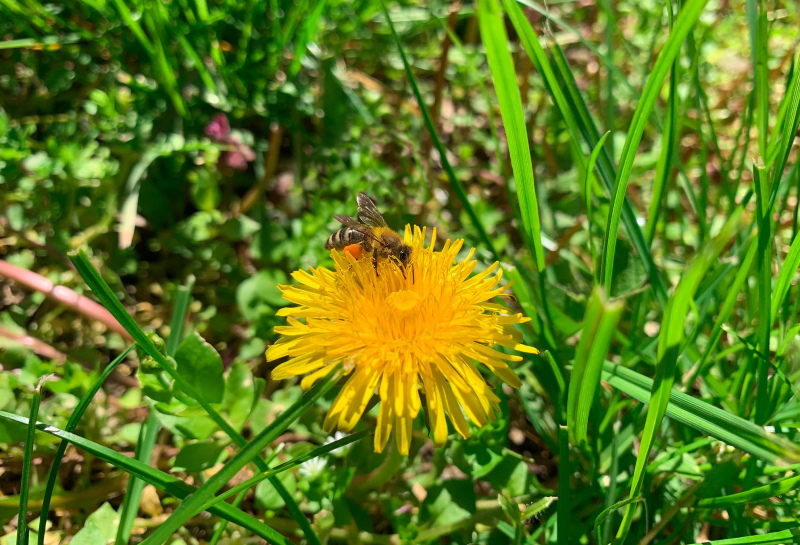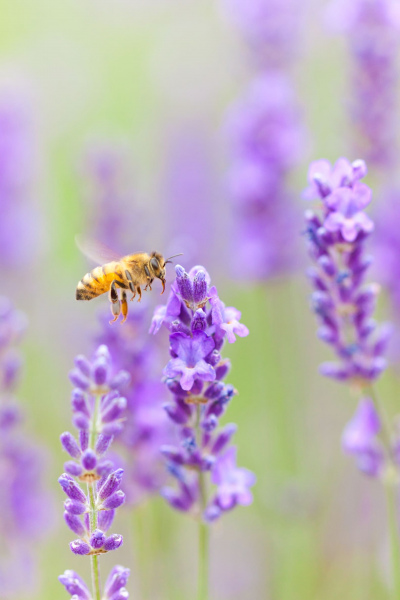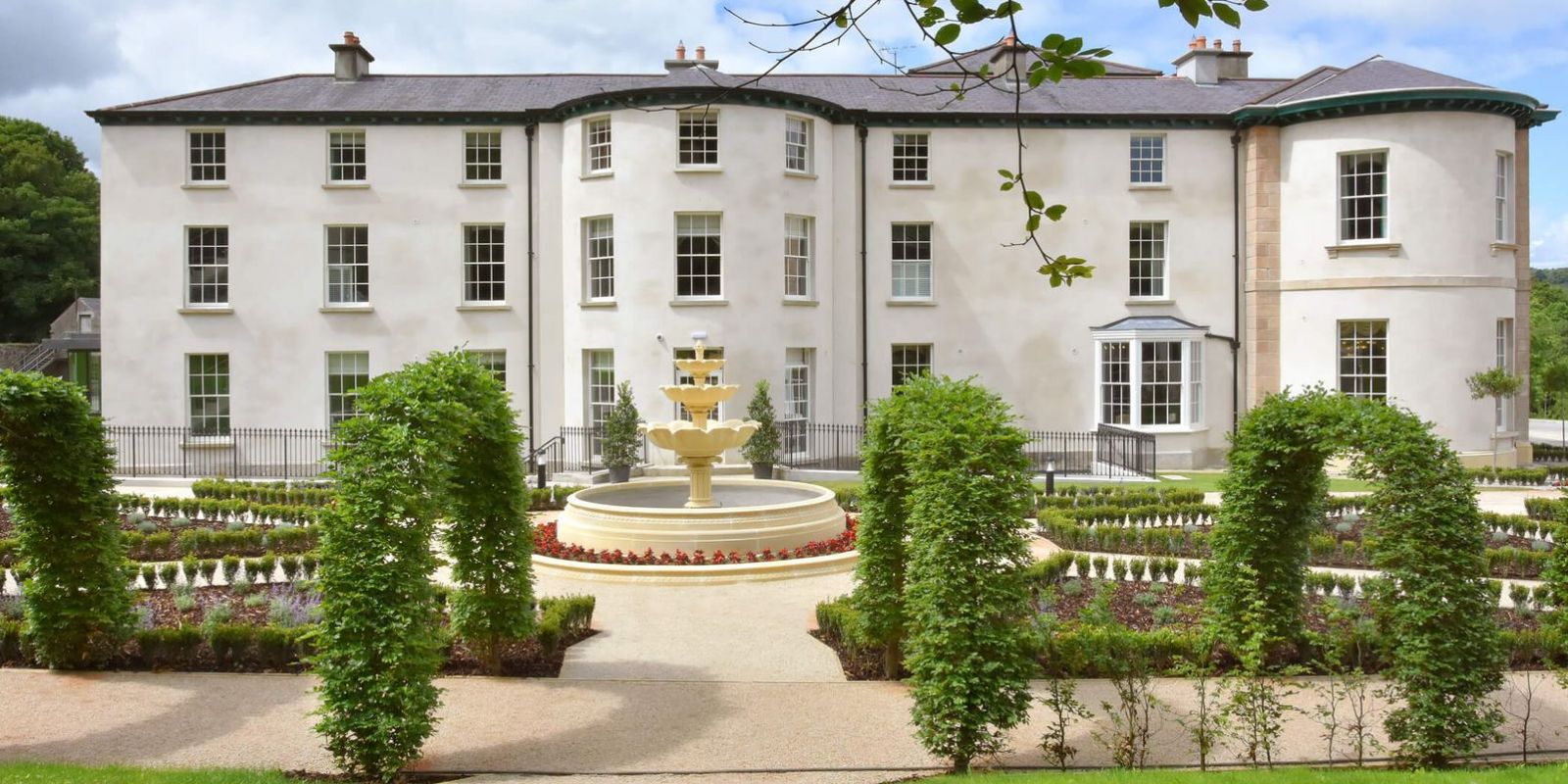Here, we hope to give you an insight into the beekeeping year as it unfolds, how bees as pollinators underpin our ecosystem, and their importance to our well-being while giving you some tips on bee-friendly planting and what to look out for in our own gardens and the surrounding countryside so we too can support our stripey friends.
You may be surprised to learn that there are 100 species of bee in Ireland; 21 species of bumblebee, 1 species of honeybee, and 78 species of solitary bee. Each species has a very different life cycle. The honeybee is the only species to bring large numbers of bees through the winter. This is why they store honey in large quantities, to feed the colony through the winter. Bumblebee queens go through the winter on their own. Solitary bee females lay eggs that cocoon through the winter and hatch in spring, but these females don’t survive the winter. As honeybee colonies come through the winter, building up strong numbers in spring, they are great pollinators with a large workforce.
As beekeepers, we are always looking for plants that will produce surplus honey after the bees have collected it. Each colony of honeybees requires an acre of flowering plants for nourishment to thrive. Honeybees require lots of pollen, as it’s used as protein to feed the growing larvae. Nectar is the carbohydrate that the bees transform into honey. Bees love simple native plants like the dandelion that offer the perfect combination of both nectar and pollen early in the season, enabling the bees to build up their colonies.

Honeybees need good weather to be able to harvest nectar and pollen. Once the day is dry and 10 degree’s or more, the bees will be working hard to gather and store enough honey so they can survive times of bad weather or low food supply.
This spring has been cold, and only now is the temperature starting to warm up. The bees have built up nicely since January, when each colony’s queen started laying eggs again. The colonies need to be strong by April to take advantage of the available forage.
In Spring trees like hazel, hawthorn, chestnut, sycamore, Lime and fruit trees provide important support to our bees. This is followed by brambles and clover in the summer (only if the ground temperature is warm enough for clover to yield nectar).

At the moment on the Rockhill Estate Chestnut is in full flower along the Chestnut Walk and in flower, hawthorn can be spotted as abundant white blooms throughout the hedgerows.
Carpets of bluebells are visible in the woodlands across the estate. The vivid blue and purple tones of the bluebell attract bees and make a great nectar food source for bees as pollinators. Due to the shape of the flowers, longer-tongued bees such as bumblebees have the easiest and fastest access to the pollen of the bluebell, but honeybees can 'steal' the nectar from bluebells by biting a hole in the bottom of the flower, reaching the nectar without the need to pollinate the flower.

Simple open flowers where the nectar and pollen is visible to visiting bees like roses, fruit trees and plants like comfrey that replenish its nectar in just 24 hours are simply great garden additions.
You probably have read about “No Mow May” and have observed that your local council has adopted this approach transforming our road verges, roundabouts, and many of our public parks into mini wildflower meadows. Why not try it in your own garden while allowing clover to flower as its is an excellent way to attract and feed the bees.
At the moment, we have 5 honeybee colonies on the Rockhill House Estate. We hope to build that number to 9 or 10 by the end of the summer. We are seeking to promote the native Irish black bee and strengthen the genetics of the honeybees locally by breeding Queens to mate locally.
Finally, if you are keen to learn more about our stripey friends keep an eye out for our entertaining and educational guided tours which we will run throughout the summer, including our Bee Safari and the Honey Bee Keeping Experience.
Frank Chaney The Beekeeper

